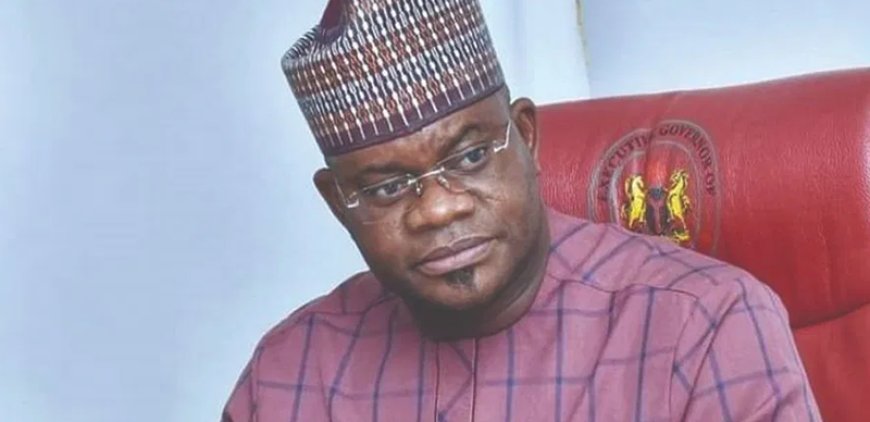Yahaya Bello’s name not on $760,910 American school payment – Witness

A witness on Thursday told the Federal High Court in Abuja that the name of the immediate past Kogi State governor, Yahaya Bello, was not on records relating to the $760,910 payment made to the American International School, Abuja.
Nicholas Ojehomon, an internal auditor with the school, testified under cross-examination that there was no indication that the payment came from Bello, the Kogi State government, or any of its local government areas.
Led in cross-examination by the defence counsel, Joseph Daudu (SAN), the witness, who has worked with AISA for eight years, was asked:“If you check the entire statement, is there any wired transfer coming from the Kogi State government? Any column?”
In response, Ojehomon said, “No, there is no such name.”
When asked if any local government in Kogi State had transferred money to the school, he also responded: “No.”
Ojehomon’s testimony came shortly after the court admitted as evidence a judgment from the Federal Capital Territory High Court that previously ruled on the legality of the payment in question.
The judgment, which had been contested by the prosecution, was admitted as Exhibit 19.
The trial judge, Justice Emeka Nwite, overruled the objection of the Economic and Financial Crimes Commission to the admissibility of the document, stating that the objection was “preemptive” and ran contrary to the principle of substantial justice.
At the previous sitting on March 7, 2025, Justice Nwite had reserved ruling on whether to admit the judgment.
The case in question—marked FCT/HC/CV/2574/2023—involved a civil dispute between the Kogi State Chief of Staff, Ali Bello, and the Incorporated Trustees of AISA over school fee payments.
During Thursday’s ruling, Justice Nwite recalled that the EFCC, represented by Kemi Pinheiro (SAN), had argued that the trial being criminal in nature meant the defence could not tender documents before the prosecution closed its case.
Pinheiro urged the court to reject the judgment document.
However, the defence led by Daudu countered that admissibility was governed solely by relevance.
Justice Nwite agreed with this reasoning and clarified that admissibility is determined by whether facts are pleaded, documents are relevant, and legal provisions are satisfied—specifically citing Sections 102 and 104 of the Evidence Act.
“Consequently, the argument that the defence cannot present the document is hereby discountenanced,” Nwite ruled.
“The objection of the learned counsel for the prosecution is hereby overruled. The document sought to be tendered is hereby marked as Exhibit 19.”
Following the ruling, the defence presented Exhibit 19 to the witness and asked him to read relevant parts.
The EFCC counsel, Olukayode Enitan (SAN), objected, arguing that it was improper to ask a lay witness to interpret a court judgment. He said:
“Anything that needs to be done with the judgment is not within his opinion. That is for those of us here, because the witness is not a legal expert.”
Daudu responded that he was not seeking the witness’s opinion but merely drawing attention to what the judgment stated—just as the prosecution had done with their exhibits.
The witness then read out parts of the judgment, including the finding that no court had ordered AISA to return any tuition fees to the EFCC, and that the funds paid were subject to a valid future fees agreement between the school and the Bello family.
The court held that AISA could not unilaterally return the funds without a court order.
Furthermore, the FCT High Court had ruled that AISA was not entitled to refund the EFCC and that the agreement for future fees remained binding on both parties.
This line of argument challenges the EFCC’s position that the funds used to pay the tuition were laundered public funds from Kogi State.
Bello is facing 19 counts of money laundering totalling N80.2bn brought against him by the EFCC.
The matter was adjourned to May 9, 2025, for continuation of trial.

 admin
admin 


